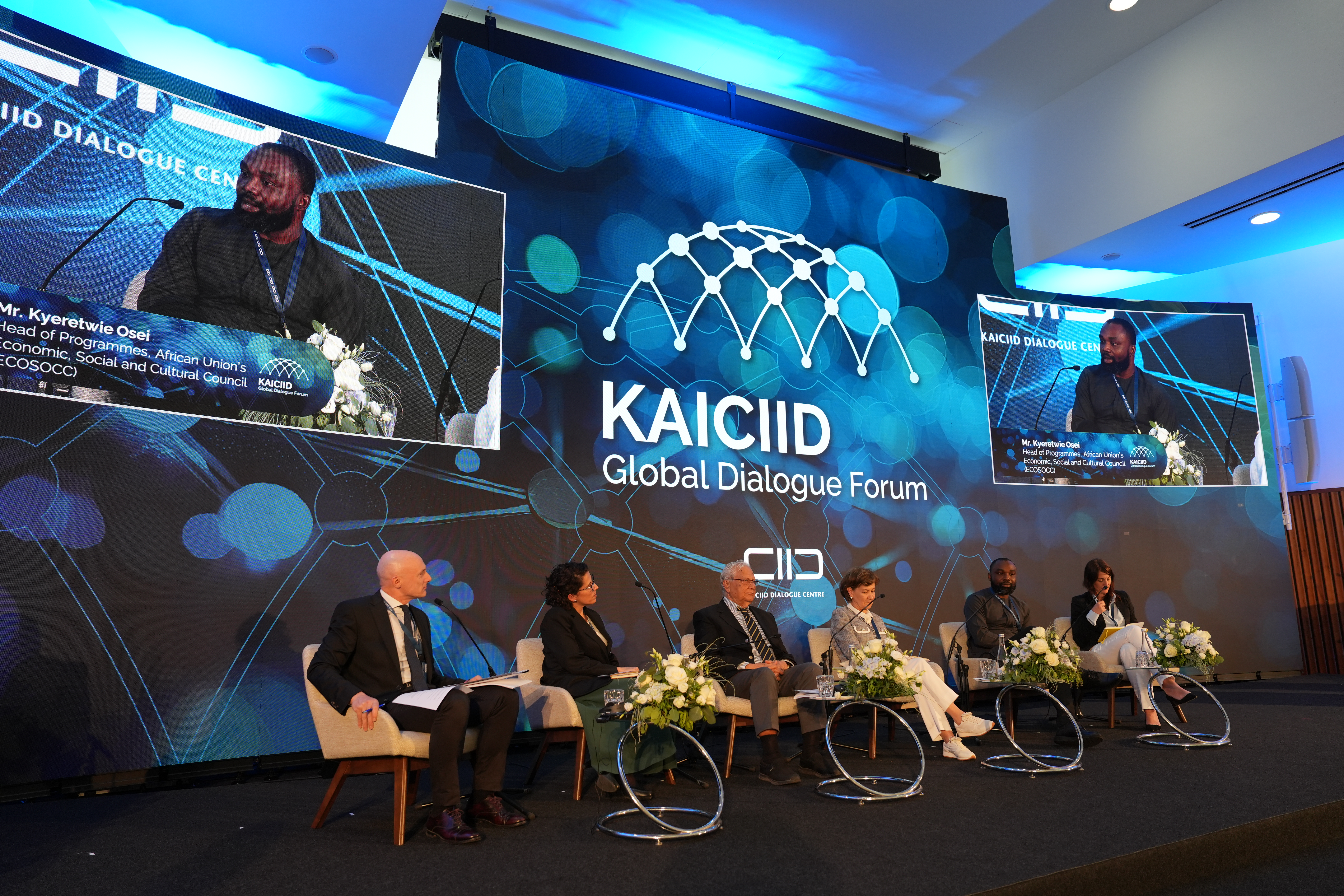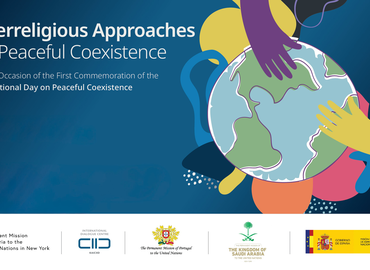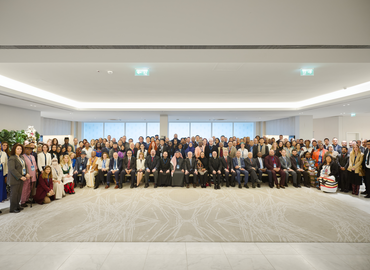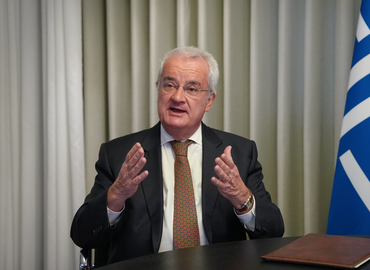Transformative Dialogue at the Forefront: Global Leaders Advocate for Sustainable Peacebuilding

The closing session of the KAICIID Global Dialogue Forum underscored the necessity of forging robust alliances and a commitment to transformative dialogue across the international community. The two-day forum fostered dynamic debates on peacebuilding, inclusive urban development, and environmental stewardship.
Andreia Henriques, External Relations and Partnership Advisor at KAICIID opened the closing panel by emphasizing the forum’s purpose: celebrating partnerships and fostering new relationships. She introduced the Forum’s Transformational Dialogue Imperative—a set of principles and approaches to steer KAICIID’s initiatives and influence its partners' efforts in the coming years.
The Transformational Dialogue Imperative highlights the pivotal role of religions in addressing interconnected crises such as climate change, humanitarian disasters, and violent conflict, Henriques told participants. It also underscores the need for sustainable and inclusive dialogue between religious leaders and policymakers, emphasizing capacity-building to foster enduring shifts in relations.
“We need long-lasting shifts in relations and a commitment to dialogue,” she continued. Henriques stressed incorporating forum messages into the Imperative, fostering conditions for ongoing dialogue, and identifying potential synergies.
Dr. Mohammad al-Sammak, former KAICIID Board Member, praised the Forum for its engaging discussions and the convening of religious leaders and policymakers. He highlighted the importance of embracing diverse perspectives. “Dialogue begins with the acknowledgment that I don't have the truth and am searching for it in the perspective of the 'Other,'” he said. Dr. al-Sammak also emphasized the necessity of openness and respect, which he noted were evident throughout the Forum’s discussions. “The past two days have shown that KAICIID is pushing in the right direction.”
Teresa Ribeiro, representative from the OSCE, and Kyeterwie 'Nana' Osei from the African Union both underscored the need for transformational dialogue within the international peace and security framework. Ribeiro connected the Forum’s dialogue discussions to the OSCE’s mission, emphasizing media freedom's role in peace and security. “We cannot have the dialogue we need without the protection of media,” Ribeiro stated, highlighting the challenges posed by polarization, new technologies, and artificial intelligence. These are challenges that dialogue must address, she told participants.
Osei highlighted the African Union's peace and security architecture, referencing the Council of Elders' role in intervention where dialogue is essential. He emphasized mobilizing and amplifying messages from diverse actors around conflict resolution and the importance of positive stories, such as the Ghanaian chief imam’s 100th birthday celebration in a Catholic Mass. Osei also addressed the discomfort within international organizations regarding engagement with religious actors, stressing their crucial role in peacebuilding efforts.
Rocio Cervera from the North-South Centre of the Council of Europe (CoE) reflected on two fundamental points raised during the Forum. Firstly, the importance of a multi-stakeholder dialogue approach. "We call it the quadrilogue, which involves decision-makers from governments, parliaments, local and regional authorities, and civil society," she explained. Secondly, she highlighted the crucial role of civil society organizations, noting the demographic power of youth. She stressed addressing dialogue on religious and spiritual traditions with a particular focus on young people to ensure inclusive and comprehensive discussions.
The session concluded with key recommendations for moving forward. Henriques called for a collaborative guide incorporating the forum's wisdom into the Transformational Dialogue Imperative. Dr. al-Sammak emphasized the need for a clear concept of dialogue, while Ribeiro proposed a Public Interest Framework to protect public space for information. Osei stressed the importance of helping secular staff at international organizations become comfortable with religious organizations. Cervera recommended including more youth and diverse voices in the discourse.
Ambassador António de Almeida-Ribeiro, Deputy Secretary General of KAICIID, closed the two-day conference by noting his pleasure in seeing partners commit to supporting the Transformational Dialogue Imperative. He highlighted that making promises is easy but keeping them requires sustained effort. “Let’s prove our accountability by taking collective action,” he said. The Forum’s message was loud and clear: transformative dialogue must be at the heart of our agendas.

As discrimination, hate speech and identity-based violence…

- KAICIID marks 10 years of global peacebuilding, uniting over 130 leaders in…

